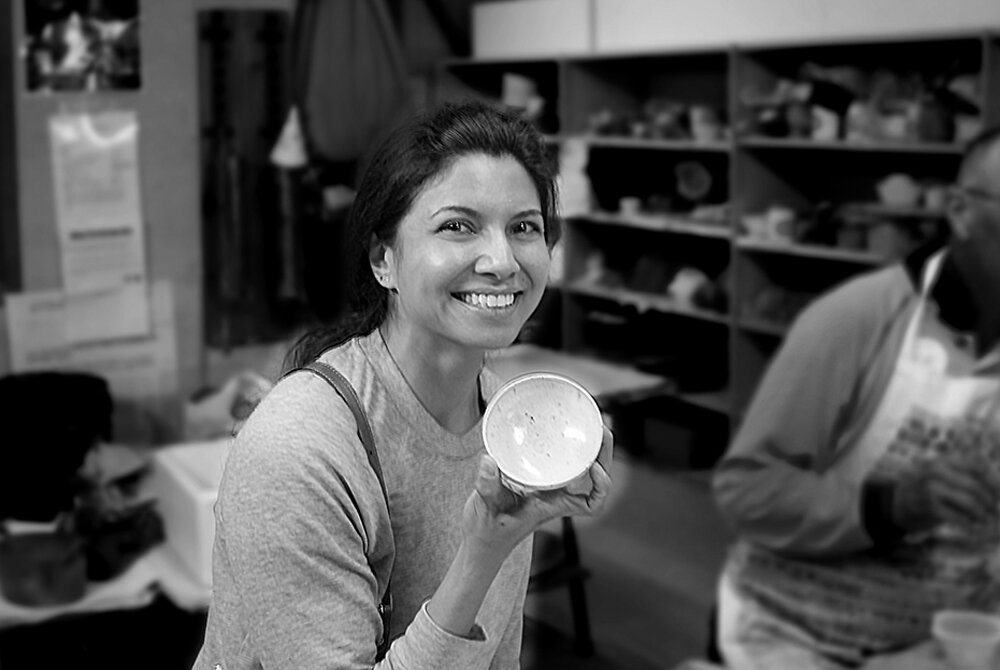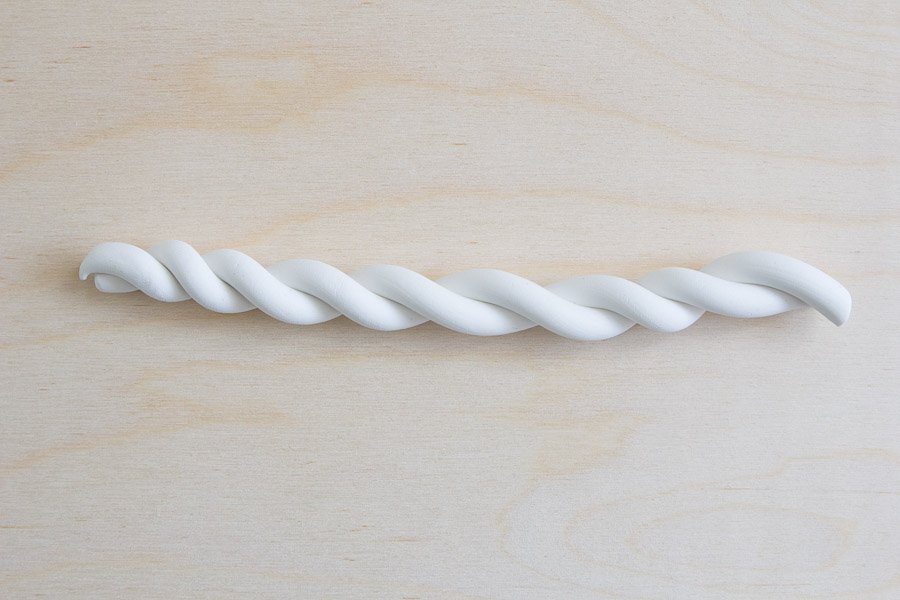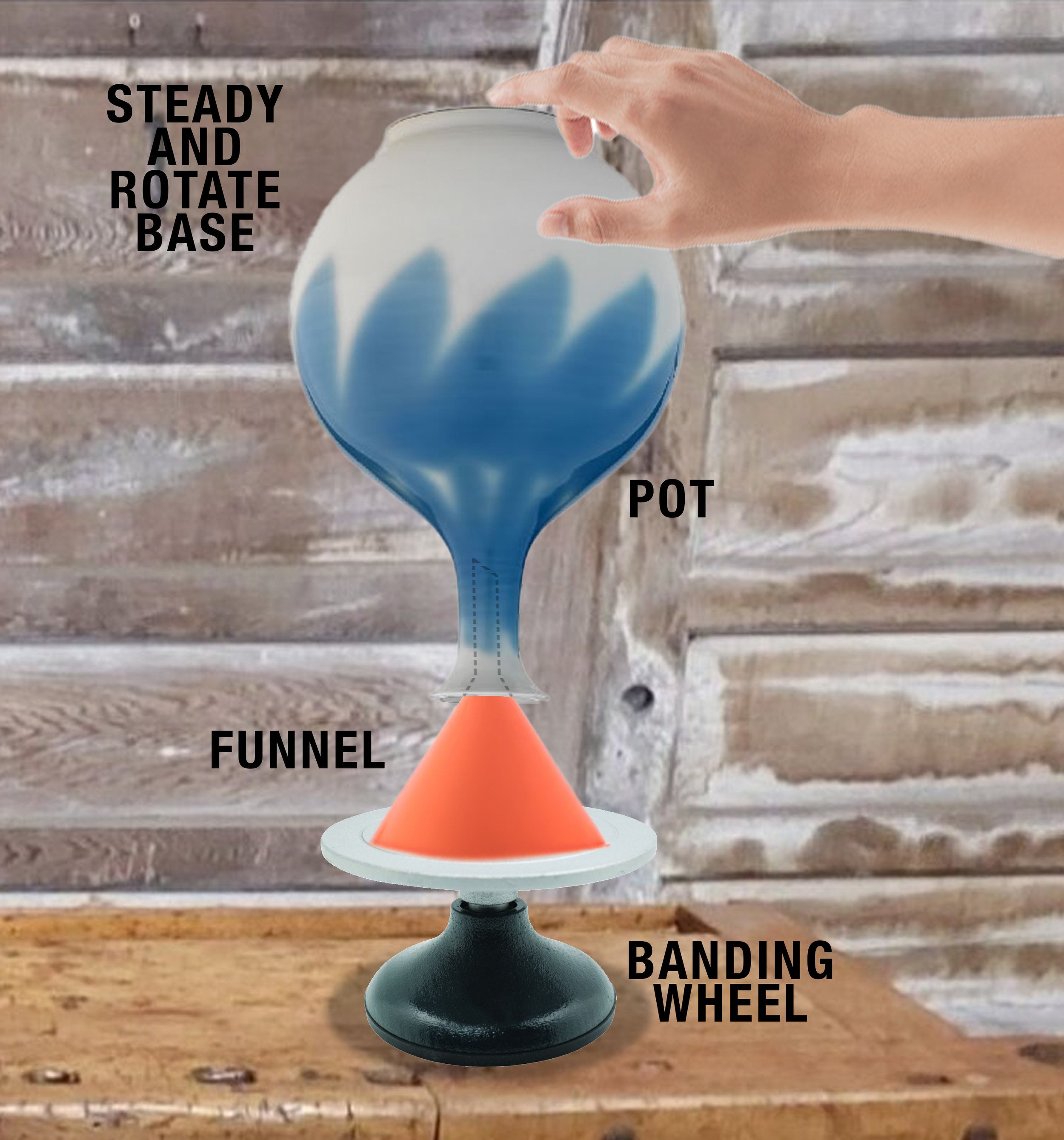
tips
Speed Dry Your Clay
Don’t throw trimmings into a plastic container and let them sit for a week or so to dry before reclaiming. Reclaiming works best when the clay is bone dry. Here is a simple technique…
Wax Removal Options
Unwanted wax removal: The usual way to remove any unwanted wax is to re-bisque the pot, but did you know that turps can also be used?
Oxide Removal
Oxide removal: When bisque ware is decorated with oxides a mistake can mean considerable mess and delay. If you use a wet sponge to clean the pot the oxide may become smeared…
So Why Does Pottery Explode?
Why Does Pottery Explode?
Many potters have had the disappointing experience at least one time of their pottery exploding in the kiln. The beauty of pottery is that you can get some …
Fixing and Joining Cracks
Handles cracking: Catch the pot at the right time and have handles at same dryness. You can leave…
Slumping During Throwing
Slumping or unevenness during throwing: Hold the length of a credit card or an even longer flexible rib against…
Trimming a Jug
Trimming a coffee pot or jug with a pouring spout that was pulled upward is simple…
Appendages Drying Too Fast?
AUGUST 2000
Handles and other appendages which give trouble by drying too fast (and consequently crack) can have the drying process slowed down. Simply paint over the joints - or fine fiddly bits - with…
Teapot Spouts
AUGUST 2000
Teapot spouts: When you are ready to apply a spout to a leatherhard teapot body, cut through the spout base at an angle, position against the pot, mark the placement and …
8 rules to throw by
JUNE 1998
Eight rules to pot by (from the Tasmanian Potters Society, 1980):
1. Sit on buttocks - not on the end of your spine.
2. Relax. Tense muscles cause neck problems.
3…
Stencils, unglazed works, flat coils
July 1995
Stencils cut from plastic lids of containers such as yoghurt, ice cream, margarine etc last much longer than paper stencils.
Is your lid stuck on?
To remove "stuck lid" after glaze firing - place lidded form in freezer for 20 minutes, remove and immediately immerse the lower portion in very hot water…
Uniform drying, rubber gloves and drying your pots
October 1990
Air currents in a studio can make uniform drying difficult, particularly with large pieces. Try putting a cardboard box over the piece.
The Importance of Having a Good Soak
Having a soak (or the holding of the firing temperature) can be very useful in a glaze firing. A soak may last from 15 minutes to 3/4 hour or more.
Squeeze bottle, wax runs, tracing designs, frozen foam blocks
Includes: Keep some slip in an old squeeze sauce bottle | A large coil pot starts to slump | Runs of wax can occur | Large garbage bags | Transferring your design | Wet, squeeze out and freeze foam blocks | A potato peeler | Blutack a cheap masking material | Clean telephone calls | Tinting hot wax | breaking down dry clay
Lid Wax Recipe
To stop lid sticking when firing Earthenware
Add 60ml (1/8 cup or 2 tablespoons) Alumina Hydrate to 125ml wax to create a special wax for firing lids on pots. When the wax burns off, the powdered, refractory alumina hydrate will stay behind, leaving a chalky resist.
Avoiding ‘S’ Cracks
Including: Avoiding "S" cracks, Before adding handles, use of Talc powder, Elastic bandages usage, vegetable peeler use
Collective Wisdom
Narrow-mouthed pots glazing trick
When pouring glaze on to tall, narrow-mouthed pots, it is difficult to balance the pot safely over the catching bowl.
Collective Wisdom
Do you have trouble firing glazed beads?
Make yourself a "bead tree", as suggested by Alma Andrews (see illustration).Make a cone of clay about 10-13cm high, either by throwing it on the wheel or pinching or coiling it by hand.
Collective Wisdom
Woven Pattern Decoration
Have some fun experimenting with patterns made by weaving strips of paper painted with coloured slips or underglazes then placing them onto a wet slab.


















